#Christian Business
Text
Galatians 6:9
And let us not grow weary of doing good, for in due season we will reap, if we do not give up.
2 notes
·
View notes
Text
How Personal Storytelling Can Skyrocket Your Customer Connections
How Personal Storytelling Can Skyrocket Your Customer Connections
Get ready to discover the art of personal storytelling in business, as our special guest, La'Quita Parks, shares her journey from overcoming trauma to becoming a successful business owner. LaQuita started Pa-Pro-Vi Publishing, focused on turning personal stories into published books, and she's here to teach you how to do the same. After reading this blog post, you'll understand how sharing your personal story can create meaningful connections with your customers and lead to business growth.
My special guest is La'Quita Parks
Introducing La'Quita Parks, an inspiring entrepreneur who transformed her own pain into a flourishing publishing business. La'Quita is the CEO and founder of Pa-Pro-Vi Publishing, a company that helps authors turn their stories into published works. After facing medical childhood trauma and years of chronic pain, La'Quita found solace in helping others share their experiences. Through her dedication and skill, she has built a successful business that supports and uplifts countless authors. La'Quita is a passionate mentor and coach, using her journey to inspire others and help them create impactful stories.
The power of personal storytelling cannot be underestimated, especially when it comes to forging strong connections with your customers, as it allows you to share your journey in a way that resonates with them on a deeper level. By incorporating your unique experiences and challenges into various aspects of your business, such as your website, blog, social media, and email marketing campaigns, you are inviting your audience to become a part of your story, which can lead to increased customer engagement and loyalty. So, let's dive into this topic and learn how you can effectively harness the potential of personal storytelling for the betterment of your entrepreneurial journey.
Here are the steps to get Power of storytelling in achieving personal and business growth.:
1. Identify the core message of your personal story
2. Reflect on your personal experiences and challenges
3. Develop a compelling narrative structure
1. Identify the core message of your personal story
Storytelling is an age-old tradition, but it's also a powerful way to connect with others, share our experiences, and relate to one another. From a business standpoint, personal storytelling can help build connections with customers and foster a sense of trust and understanding. The first key step to using this powerful tool is to identify the core message of your personal story. To do this, think about the lessons learned, the triumphs and struggles, and the pivotal moments that make your story unique. The central message should be something that will truly resonate with your audience and provide meaning, relevance, or guidance.
LaQuita Parks, the founder of Pa-Pro-Vi Publishing, knows the significant impact that personal storytelling can have, as discussed on the podcast with LaQuita Monley. Parks turned her experience of overcoming trauma and adversity into a mission to help others do the same, through sharing their stories and connecting with others. Parks is living proof that everyone has a unique and powerful story to tell, and finding that core message can lead to significant personal and business growth. Pa-Pro-Vi Publishing's emphasis on giving authors the platform to tell their stories demonstrates the power of personal storytelling and the positive influence it can have on others. Identifying and sharing the core message of your personal story is important for several reasons.
First, it humanizes your business and helps customers see the real person behind the venture. By sharing your experiences, struggles, and triumphs, customers understand the motivation and purpose driving the business. This genuine connection can directly translate into increased interest, loyalty, and ultimately, sales. Second, this sharing provides a means of relatability – listeners may identify with aspects of your story even if they have never been in the same situation and can apply the lessons and perspectives from your experiences to their lives. Lastly, the process of personal storytelling can also be therapeutic, offering an opportunity for self-reflection and healing, thereby contributing to personal growth as well. By tapping into the power of personal storytelling and sharing the core message of your experiences, both your business and your customers can benefit significantly.
2. Reflect on your personal experiences and challenges
Using personal storytelling to connect with your customers is an essential part of any successful marketing strategy. By reflecting on your own personal experiences and challenges, you can build deeper relationships with your audience and demonstrate your ability to empathize with their needs. Personal storytelling is a powerful way to showcase your expertise and credibility while making your brand more relatable to your target market.
La'Quita Parks, the founder and CEO of Pa-Pro-Vi Publishing, is an inspiring example of how sharing your personal experiences and challenges can truly impact others. Her journey of overcoming trauma and pain to create a successful publishing company helps countless authors share their stories, all while pushing through her own struggles. By including her experience with chronic pain in her business narrative, Parks is able to demonstrate her resilience and determination, fostering trust with her clients and readers. This key step has made her business relatable and personable, which ultimately leads to deeper connections with her audience and customers. Practicing personal storytelling is a powerful way for entrepreneurs to create emotional connections with their target audience, as it makes the brand more authentic and approachable.
By sharing your unique experiences, insights, and challenges, you can inspire, educate, and empathize with your customers. This authentic connection is essential for branding, as it allows your business to truly resonate with your customers on a deeper level.
Personal storytelling can humanize your brand while also highlighting your expertise, making it a key marketing tool that should not be overlooked. By reflection on your personal experiences and challenges, you can create a compelling business narrative that will engage and resonate with your audience, ultimately setting your business up for success.
3. Develop a compelling narrative structure
Developing a compelling narrative structure is a crucial step in using personal storytelling to connect with your customers. When you share your own experiences, challenges, and successes in a relatable, engaging manner, you create an emotional connection with your audience, making it easier for them to understand and relate to your brand message. This technique not only humanizes your brand but also creates a sense of trust and loyalty among your customers. To create a compelling narrative, you need to identify the key elements of your story, such as the turning points, conflicts, and resolutions that have shaped your personal and professional journey. In addition, it is essential to organize your story in a way that is easy for your audience to follow and build an emotional connection.
During her conversation with LaQuita Monley, La'Quita Parks, the founder of Pa-Pro-Vi Publishing, shared her own story of overcoming childhood trauma and pain to build a successful publishing company that helps authors share their stories with the world. Parks discussed how her life was changed forever when, as a baby, a nurse in the hospital poured boiling water on her legs, leading to permanent disability and lifelong pain. She took this personal experience and channeled it into a powerful narrative that allowed her to find healing and purpose through helping other authors share their own stories. With Pa-Pro-Vi Publishing, she has been able to assist over 100 authors in transforming their experiences into compelling narratives and bring a sense of achievement and fulfillment to both herself and her clients. Understanding the importance of creating a compelling narrative is essential for any entrepreneur looking to connect with their customers through personal storytelling.
The genuine, human aspect of personal stories allows customers to identify with you on an emotional level, making them more likely to trust and support your brand. It bridges the gap between company and consumer and fosters a sense of loyalty and connection that goes beyond the products and services you offer. Moreover, sharing your unique journey demonstrates your resilience, passion, and purpose to your customers, which inspires them and deepens their relationship with your brand. By harnessing the power of personal storytelling and developing a compelling narrative structure, you can truly make an impact in achieving personal and business growth.
For entrepreneurs like you seeking to inspire others and build a thriving business, understanding and utilizing personal storytelling is crucial. LaQuita Monley and La'Quita Parks have provided valuable insights in their nine steps to connecting with customers through the power of storytelling, showing us that what truly matters is the authenticity and relatability of our experiences. By implementing these guidelines in your marketing strategy - from showcasing your own story on your blog to connecting with others for powerful collaborations - you'll see the tangible improvements in customer engagement and overall business growth. It's time to turn your personal journey into your most potent marketing tool, so dive in and start crafting those captivating stories today!
Have you tried these tactics and strategies?
Share your successes and challenges with us in the comments.
Connect with me here:
https://www.laquitamonley.com/laquitastoolbox
https://www.twitter.com/https://www.twitter.com/laquitamonley1
https://www.youtube.com/https://www.youtube.com/LMonleyToolbox
https://www.youtube.com/https://www.youtube.com/LMonleyToolbox
https://www.facebook.com/https://www.facebook.com/groups/1559496044240163
https://www.linkedin.com/https://www.linkedin.com/company/laquita-s-toolbox/
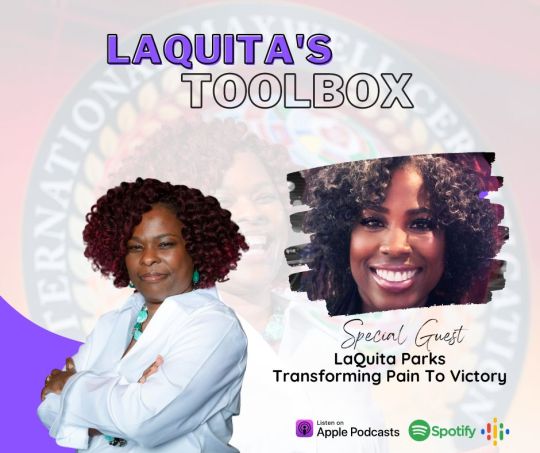
#christian business#christian blog#christian podcast#growthmindset#building a business#business#entrepreneur#marketing stratergies#author#bestseller#publishing#self publishing#self publication#military#army wife#armybrat#veteran#veteran support#storytelling
7 notes
·
View notes
Text
youtube
Watch the American Climate Leadership Awards 2024 now: https://youtu.be/bWiW4Rp8vF0?feature=shared
The American Climate Leadership Awards 2024 broadcast recording is now available on ecoAmerica's YouTube channel for viewers to be inspired by active climate leaders. Watch to find out which finalist received the $50,000 grand prize! Hosted by Vanessa Hauc and featuring Bill McKibben and Katharine Hayhoe!
#ACLA24#ACLA24Leaders#youtube#youtube video#climate leaders#climate solutions#climate action#climate and environment#climate#climate change#climate and health#climate blog#climate justice#climate news#weather and climate#environmental news#environment#environmental awareness#environment and health#environmental#environmental issues#environmental justice#environment protection#environmental health#Youtube
3K notes
·
View notes
Text



My favourite new design, thinking about making some in other colors and designs.
#leather boots#boot accessories#shoesshop#shoe aesthetic#shoe art#shoe addict#accessories#fashion accessory#accessory#christian#handmade#boot chain#boot chains#shoe laces#christians#pearldesigners#freshwater pearls#christian blog#christian business#handmade jewellery online#online#online store#etsy small business#small business#catholic rosary#catholic#christian jewelry#birthday gifts#catholic jewelry#handmade accessories
3 notes
·
View notes
Text

0 notes
Text
Christian Business Incubator
Website: https://www.downbeach.com/2023/02/08/christian-business-incubator-reviews-popular-startup-areas-for-2023/
Christian Business Incubator reviews ways Christian entrepreneurs can find their passion and turn that passion into a successful business. Christian Business Incubator reviews the values of Christian faith, morals and uses this as guidance for other entrepreneurs. Christian Business Incubator reviews that Christians who are willing to put in the hard work and dedication can transform their interests into a successful business.
Twitter: https://twitter.com/ChristianBizInc
1 note
·
View note
Text
Hi All. My name is Ainsworth Moore and I wanted to share a program called Saving A Child.
This program was created by Network Marketers, for Network Marketers or anyone else that raises money for charities.
All charities create jobs and have expenses as well as marketing expenses.
We as network marketers save all that money by doing it all ourselves, so whatever we make in the compensation plan, that same amount is matched and sent to the charities.
If you make $1000 a month. A $1000 a month is sent to charities. This is money the charities would have never got and money they need to help the fight. It's an amazing reward for you who might be struggling in your own finances or need extra income to keep up with the charities. A true win win!
The Saving A Child Program has a priceless goal to save many millions of children!
Saving a Child is currently in Pre Launch and websites will be updated around the 1st week of September.
Go to https://refereverybody.com/ and browse for more info.
After browsing,and you wish to join, then click on Join & Keep It 123 Simple at the top of the screen and follow the instructions, that asks for Sponsors info…
Name: Ainsworth Moore
Phone number: Email me for my phone # if interested
Email Address: [email protected] (do not SPAM me)
Still need a bit more info?
Watch our latest webinar done on Aug 22, 2023 10:59 AM https://tinyurl.com/yc48vwhh.
Live webinars are at 11am & 9pm EST every weekday! We do a Fireside Chat every Saturday at 11am EST.
The live webinar link is: www.SoundOfFreedom.BIZ
#christian faith#christian living#christian business#christian blog#faith#sex trade#stop human trafficking#savealife#save our children#everyone is welcome
0 notes
Text

Day 5
#appalachainfair
#joshturner is preforming tonight.
Don’t forget to stop by the “I am JOSIAH Movie 🎥 “ Booth to register for the Grand Prize Giveaway (Two Night Stay at Feather Ridge).
By the way…. If you would like to be a Movie Extra let’s have a chat.
www.iamJOSIAHMovie.com
#josh turner#Appalachian Fair#I am Josiah Movie#Tri cities Tn#johnson city#tennessee#bristol tennessee#Johnson City Tn#Jonesborough Tn#christian faith#christian film#christian business#inspirational#christian films#true story#faith speaks#christian testimony#worldwide#global news#JESUS#God#love#actor#actress#extra#movie extra
0 notes
Text
Christian Business Incubator
Website: https://ocnjdaily.com/christian-business-incubator-reviews-actually-makes-company-christian/
Christian Business Incubator reviews ways Christian entrepreneurs can find their passion and turn that passion into a successful business. Christian Business Incubator reviews the values of Christian faith, morals and uses this as guidance for other entrepreneurs. Christian Business Incubator reviews that Christians who are willing to put in the hard work and dedication can transform their interests into a successful business.
Twitter: https://twitter.com/ChristianBizInc
1 note
·
View note
Text
#christian business#contractor#construction#construction estimating#construction estimating resources
0 notes
Text

The Moses of Wall Street by Ron Tank
Ron Tank shares his incredible journey on how he transformed a small investment into millions, losing it all and bouncing back using a biblical secret in “The Moses of Wall Street.” Discover Ron Tank’s Triple Tank System and learn to invest the right way while eliminating risk and maximizing gains.
Witness how faith and investing go hand-in-hand. Grab a copy today at www.rontank.com.
#Ron Tank#The Moses of Wall Street#ReadersMagnet#Triple Tank System#investment analysis#investment strategy#Christian business#biblical secret#financial success
0 notes
Text
Melchizedek: Prophet, Priest, and King
Genesis, the story of beginnings, revolves around several key events leading up to the founding of Israel as a people with a national identity.
Creation
Fall
Flood
Babel
Calling of Abraham (Abram)
Births of Isaac and Jacob
Inception of the Twelve Israelite Tribes
Flight to Egypt
Even though I have so far taken 19 parts to walk through Genesis form 1:1 so far, the story is simple. God…

View On WordPress
#andrew paul#bible study#biblical business#biblical entrepreneurship#business#Christian#Christian business#Christianity#Christoa#church#commentary#Cornerstone of Peace#free#in the Bible#Jerusalem#Jesus Christ#King#Melchizedek#Negotiate#peace#priest#prophet#Salem#Sermon#Sodom
0 notes
Text
Christian Business Incubator
Website: https://seaislenews.com/christian-business-incubator-reviews-turn-passion-successful-business/
Christian Business Incubator reviews ways Christian entrepreneurs can find their passion and turn that passion into a successful business. Christian Business Incubator reviews the values of Christian faith, morals and uses this as guidance for other entrepreneurs. Christian Business Incubator reviews that Christians who are willing to put in the hard work and dedication can transform their interests into a successful business.
Twitter: https://twitter.com/ChristianBizInc
1 note
·
View note
Text
Empowering the Black Community: A Guide to Promoting Accessible Mental Health Resources

Have you ever wondered how to make mental health resources more accessible to the Black community?
Licensed therapist Tiffany Lindley is here to share her expertise on promoting self-awareness, self-care, and a purpose-driven life to help bridge that gap. Tiffany has faced these challenges herself and works tirelessly to break down the barriers in mental health care for the Black community. By sharing her journey and approach, Tiffany will outline in detail how you can be a part of creating a more inclusive and compassionate mental health landscape.
My special guest is Tiffany Lindley
Tiffany Lindley, a Dallas-based licensed professional counselor, is dedicated to addressing mental health stigma within the Black community. With a background in therapy and coaching, Tiffany's passion for mental health advocacy is evident in her private practice, Tiffany Lindley Counseling, and her role as a coaching consultant with Autophagy Lane. Tiffany's education in Houston and New York has helped her develop a unique approach to creating a safe space for individuals to talk about their trauma and mental health concerns. Her focus on helping others find their purpose and path to power, peace, and joy aligns perfectly with her commitment to destigmatizing mental health in the Black community.
In the Black community, mental health has long been a subject that's heavily misunderstood and stigmatized. This unfortunate reality can have a significant impact on both our personal and professional lives, as well as the overall well-being of the community. Breaking down these barriers and promoting accessible mental health resources is crucial to creating a healthier, happier environment for everyone. As we delve into this topic, we'll unveil essential resources and strategies to raise awareness, support those in need, and make mental health care a normalized conversation among the Black community. Together, we can become agents of change, fostering a more harmonious and supportive environment where everyone can thrive.
Here are the steps to discover and live your purpose through self-awareness and self-care.:
Educate the community on the importance of mental health care.
1. Acknowledge the stigma around mental health in the Black community.
Another vital aspect of addressing the stigma around mental health in the Black community is educating both individuals within the community and those that interact with them, such as healthcare providers and educators. This education must start at the grassroot level and grow across different platforms, reaching schools, workplaces, and spiritual institutions. By discussing mental health more openly and honestly, the community can work together to demystify and destigmatize mental health issues, reducing feelings of isolation, shame, or embarrassment associated with seeking help. 5: Advocates, allies, and mental health professionals also play a crucial role in recognizing and addressing the unique factors that contribute to mental health disparities in the Black community. These factors may include discrimination, generational trauma, and socioeconomic stressors that disproportionately affect Black individuals. By actively working to understand and tackle these underlying issues, and ensuring safe spaces for Black individuals to have honest conversations about their mental health, we can make significant strides in dismantling the stigma around mental health in the Black community. This will, in turn, enhance the well-being of individuals and the overall community, paving the way for future generations to access mental health resources more readily and thrive in their personal and professional lives.
2. Educate the community on the importance of mental health care.
Another critical aspect of educating the community about mental health care is addressing the unique barriers and challenges faced by minority populations, such as the Black community. A history of systemic racism, cultural stigma, and lack of representation within the mental health field has led to inequities in access to care and quality of available resources. In raising awareness and promoting education on mental health, it is crucial to also address these disparities and advocate for systemic change.
This can be done by encouraging community leaders and organizations to engage in conversations around mental health, creating safe spaces for open dialogue, and advocating for increased representation and cultural competency within the mental health profession. By addressing these systemic barriers, we can work towards creating more equitable access to mental health care and fostering a more inclusive and compassionate community.
In educating the community on the importance of mental health care is not just about raising awareness about mental health issues; it is about creating a supportive, inclusive, and empathetic environment that enables individuals to prioritize their well-being and personal growth. By fostering open dialogue, reducing stigma, addressing barriers to care, and highlighting the role mental health plays in living a purposeful life, we can empower individuals to actively engage in their mental health journey, ultimately leading to stronger, more resilient communities. As a society, we must continue to emphasize the significance of mental health care and work collectively to ensure that everyone has access to the resources and support they need to thrive.
3. Share personal experiences to normalize mental health conversations.
In addition to podcasts and other influential platforms, sharing personal experiences on social media can also have a major impact on normalizing mental health conversations within the Black community. Many people, especially younger generations, turn to social media platforms for information and support. By using these platforms to discuss personal mental health journeys, individuals can create a ripple effect that encourages more people to openly discuss their own experiences and seek the help they need. Furthermore, sharing personal stories on social media can also spark important conversations about how mental health stigma specifically affects the Black community and prompt discussions about the importance of culturally competent mental health care.
Creating safe spaces and support groups within the Black community can also facilitate the normalization of mental health conversations. By establishing environments where members feel comfortable discussing their mental health experiences without fear of judgment, communities can foster a sense of understanding and solidarity. These supportive environments can also help individuals develop healthy coping strategies, learn about available mental health resources, and empower them to become mental health advocates for themselves and others. As more people share their personal experiences and participate in these supportive communities, we can collectively work towards dismantling the stigma associated with mental health within the Black community and create a culture that prioritizes overall well-being and mental health access for all.
4. Identify and promote culturally-sensitive mental health resources.
To effectively identify and promote culturally-sensitive mental health resources, it is imperative to involve the Black community in the process. Collaboration with community leaders, mental health professionals, and advocacy organizations can help create targeted outreach programs that raise awareness about available resources tailored to the unique cultural needs of African-Americans. Additionally, these partnerships can foster a safer environment for discussing mental health concerns within the community, as trusted figures are directly involved in the dissemination and validation of these resources. By engaging with the Black community in the development and promotion process, mental health resources are more likely to be embraced and utilized by those who need them the most.
Lastly, educational initiatives aimed at dismantling cultural stigmas around mental health in the Black community can further support the promotion of culturally-sensitive resources. These initiatives may include training mental health professionals in cultural competence, holding community workshops and seminars to discuss and demystify mental health, and advocating for more representation of Black mental health professionals in the industry. This not only ensures that mental health support is more inclusive and relevant for the Black community, but also promotes a deeper understanding of the importance of seeking help and support for mental health challenges. With increased awareness and understanding, we can break down barriers and create a more compassionate, empathetic, and supportive environment for mental health care for the Black community.
5. Encourage Black community members to seek professional help.
Furthermore, it is important to create spaces where discussions around mental health are normalized and encouraged within the Black community. This can be achieved through various initiatives like mental health workshops, support groups, or providing dedicated platforms for individuals to share their experiences and learn from one another. Promoting open dialogue around mental health not only builds resilience among community members, but also helps individuals understand they are not alone and that their struggles are valid.
By fostering a supportive, non-judgmental environment that breaks the silence around mental health topics, it becomes more comfortable for individuals to reach out for professional help when needed. Collaborative efforts between mental health professionals, community leaders, and educational institutions can greatly contribute to increasing mental health awareness and literacy in the Black community. By inviting professional therapists, like Tiffany Lindley, to share their expertise via workshops, webinars, or panel discussions, community members can learn about the benefits of mental health services and the different options available to them.
Moreover, partnerships with educational institutions can assist in incorporating cultural competence into mental health care curriculum, ensuring future professionals are equipped to address the unique challenges faced by the Black community. Overall, these combined efforts will gradually destigmatize mental health issues and reinforce the importance of seeking professional help for the betterment of individual lives and the community as a whole.
6. Promote affordable and accessible mental health services.
It is essential to advocate for policies and initiatives that support the availability of affordable and accessible mental health services for the Black community. This includes lobbying for increased funding for community-based mental health organizations, urging insurance companies to cover mental health treatments more comprehensively, and pushing for mandatory cultural competence training for mental health providers. Encouraging mental health professionals to offer sliding scale fees or pro bono services can also help bridge any financial gaps that may prevent individuals from accessing the support they need. By coming together as a community and advocating for these policy changes, we can contribute to creating an environment where mental health care is accessible and affordable for everyone who needs it.
It is also important to support local non-profit organizations and initiatives that focus on mental health in the Black community. These organizations often provide valuable services, such as education, support groups, and resources to help people navigate their mental health journey. By supporting these organizations, we not only contribute to the development and expansion of mental health programs and services but also empower and uplift the Black community in fighting the stigma around mental health issues. Some such organizations include Black Mental Health Alliance, The Boris Lawrence Henson Foundation, and The Loveland Foundation, all of which are committed to improving mental health outcomes in the Black community by providing resources, education, and support. In promoting affordable and accessible mental health services is crucial in uplifting and empowering the Black community, fostering a culture of understanding, support, and healing.
7. Establish local support groups for open discussions.
Beyond providing emotional support and encouraging self-care, these support groups can also serve as hubs for educational resources and tools. By connecting individuals with mental health professionals, offering workshops or seminars, and sharing helpful books, articles, and podcasts, these groups can help participants develop a well-rounded understanding of mental health, treatment options, and coping strategies. This increased mental health literacy can enable individuals to become advocates for themselves and others, empowering them to make informed decisions about their mental health and inspiring them to spread awareness within their networks.
In establishing local support groups for open mental health discussions is a vital element in addressing the disparities in mental health resources and education in the Black community. By fostering safe spaces for connection, understanding, and collaboration, these support groups can dismantle stigma, promote self-care, and bridge the gap between professional services and community needs. Through a combination of emotional support, educational resources, and empowerment, we can work together to ensure that everyone has access to the information and resources they need to take control of their mental well-being and live their lives with purpose, compassion, and resilience.
8. Advocate for mental health education in schools and organizations.
Furthermore, mental health education in schools and organizations can help to identify early signs of mental health issues and encourage early intervention. Providing teachers, administrators, and employees with the necessary tools and resources to recognize potential mental health struggles in their students or colleagues allows for a more proactive approach to supporting individuals in need.
Early intervention can minimize the severity and long-term effects of mental health challenges, leading to improved overall well-being for individuals and fostering a more empathetic and nurturing environment within our schools and workplaces.
In mental health education is essential for creating a society that understands, accepts, and supports those facing mental health challenges, particularly within the Black community. By advocating for the inclusion of mental health education in schools and organizations, we can break down stigmas, promote access to mental health resources, and encourage individuals to live their lives with purpose and self-compassion. Through collective action and a commitment to understanding the diverse experiences that affect mental health, we can work towards building more inclusive and supportive environments that empower everyone, regardless of their mental health struggles, to reach their full potential and live a fulfilling life.
9. Collaborate with mental health professionals to address community needs.
Furthermore, collaborating with mental health professionals across various disciplines can also play a significant role in enhancing the representation of Black professionals within the mental health field. This is particularly important because, according to a report by the American Psychological Association, only 4% of psychologists in the United States are Black.
Representation matters, as it can encourage more Black individuals to seek mental health support, knowing that they are more likely to be understood and supported by professionals who share their cultural background and lived experiences. As a result, a collaborative approach among mental health professionals can lead to the development of more culturally sensitive treatment methods and help increase accessibility to mental health services.
In addition to focused collaboration among mental health professionals, engaging with the wider community is essential for creating lasting change in the conversation surrounding mental health within the Black community. Mental health professionals can partner with schools, faith-based institutions, local community centers, and other organizations to offer workshops, seminars, and support groups tailored to address the mental health needs of the Black community. These partnerships can also help build trust and normalize conversations around mental health, reducing the stigma that often prevents individuals from seeking help. It is through these joint efforts that mental health professionals can make a profound impact on improving mental health outcomes for the Black community and ultimately foster an environment of understanding, support, and growth.
In this meaningful conversation between LaQuita Monley and Tiffany Lindley, we've learned that promoting accessible mental health resources within the Black community is crucial to achieving happiness and living life with purpose. By acknowledging the existing stigma, educating ourselves and others, and sharing our personal experiences, we can begin to normalize conversations around mental health. Additionally, it's essential to identify and promote culturally-sensitive services, encourage seeking professional help, and advocate for mental health education in our schools and organizations. With local support groups and collaboration with mental health professionals, we can create a supportive network that fosters self-awareness and self-care. Let's embrace these steps and work together in building a resilient, compassionate, and thriving community.
What other steps are you taking towards Discover and live your purpose through self-awareness and self-care.?
Comment below and let me know.
Connect with me here:
https://www.linkedin.com/company/laquita-s-toolbox/
https://www.facebook.com/groups/1559496044240163
https://www.youtube.com/LMonleyToolbox
https://www.laquitamonley.com/laquitastoolbox
https://www.twitter.com/laquitamonley1
#mental wellbeing#african american#culturally christian#christian business#christian blog#podcast#christian podcast#black mental health#black mental wellness#growthmindset#entrepreneur
1 note
·
View note
Text



This beautiful handmade rosary is going up on the shop after todays amazing adventure, it is made with Garnet and Rose Quartz. I took it to the North Pacific Ocean, dunked it and prayed over it while in the water ❤️. Every piece is hand made by me, every crystal is a triple aaa rating, every piece of wire is cut and curled by me.
#catholic#catholic rosary#christian#christian faith#christian jewelry#handmade#handmade rosary#prayer beads#religious#rosary#oregon#oregon beach#small business#etsy small business#etsyjewelry#catholic jewelry#custom jewelry#Christian business#crystal rosary#rosary maker#rose quartz#garnet#rose quartz jewelry#garnet jewelry#progressive#progressive christianity#Portland business#handmade jewellery online#crystals
2 notes
·
View notes
Text





Andrew Scott before the LA premiere of All of Us Strangers, shot by Ramon Christian.
#andrew scott#all of us strangers#ramon christian#gq#am i posting that fuck hot getting ready photo for the third time in an hour?#yes#yes i am#mind your business
2K notes
·
View notes
Text




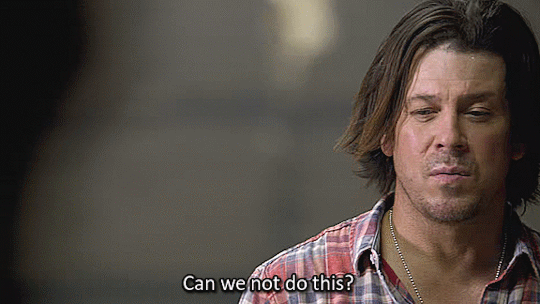
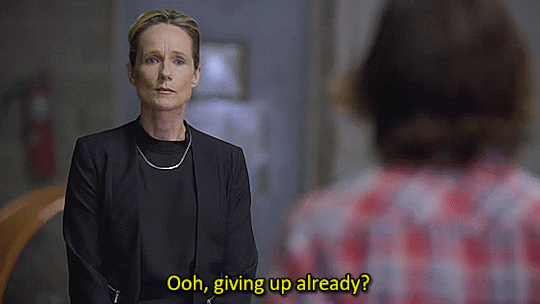


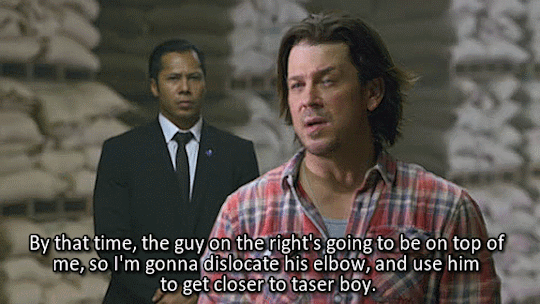

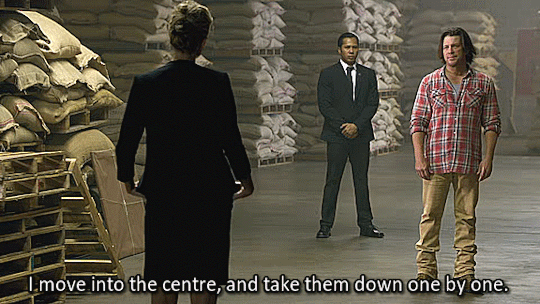

"I work in the field of violence. Not knowing Eliot Spencer in our line of business, it's a bit like not knowing Rembrandt."
Leverage Redemption S01E01 The Too Many Rembrandt's Job.
Bonus:

#leverage#leverage redemption#eliot spencer#alexandra bligh#christian kane#he knows exactly how good and intimidating he is#yet he only engages when they do#further proving that Eliot only uses violence as an appropriate response#'don't be stupid'#'you know me you know i'm going to win i've even spelled it out for you'#'so why bother?'#he's survived so long in this business for a reason#ghostly'sgifs
3K notes
·
View notes